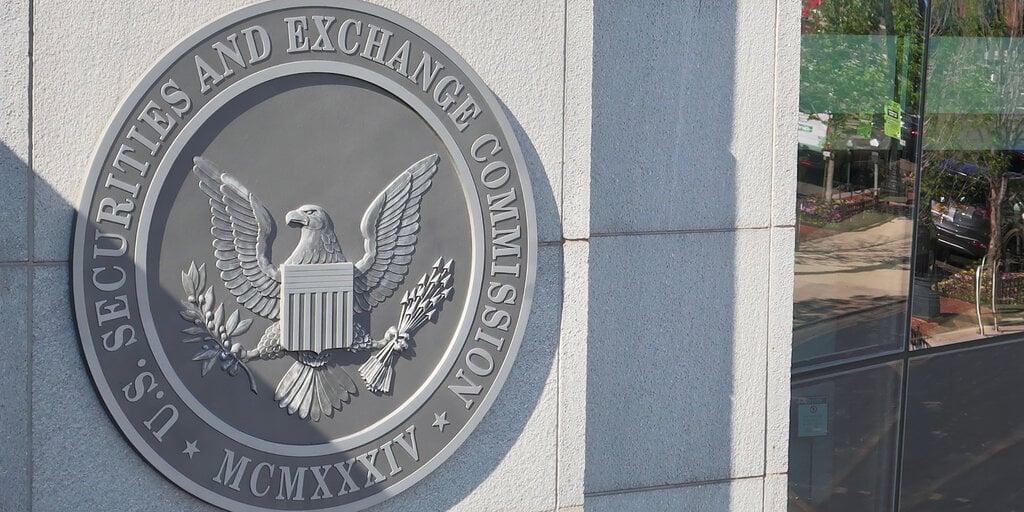In the digital age, the battle between innovation and regulation is never-ending. As decentralized finance (DeFi) platforms continue to shift the landscape of traditional finance, regulatory bodies are keen to expand their purview to include these new, uncharted territories. A recent move by the U.S. Securities and Exchange Commission (SEC) to amend the definition of “exchange” has sparked a significant debate across the crypto community, especially among leading DeFi platforms.
The Evolution of Exchange Definition
The SEC’s effort to redefine what constitutes an “exchange” is seen by many as a direct response to the burgeoning growth of decentralized exchanges (DEXs). These platforms, unlike their centralized counterparts, operate without a central authority, using automated, on-chain software to facilitate trades. This foundational difference raises questions about the applicability of traditional securities exchange regulations to the DeFi space.
One of the central arguments against the SEC’s proposed rule change points to the practical impossibility of DEXs adhering to registration and disclosure requirements designed for traditional financial institutions. Such requirements assume a centralized entity’s involvement in managing and operating an exchange, an assumption that does not hold in the context of DEXs.
Regulatory Overreach and Its Implications
Concerns have been raised about the SEC’s approach, accusing it of being arbitrary and irrational in its attempts to regulate a domain inherently resistant to traditional forms of financial oversight. Critics argue that, by pushing for such a rule change, the SEC is not only misinterpreting the nature of decentralized technologies but also potentially stifling innovation by imposing unfit and burdensome regulations on DEXs.
This criticism is not unfounded, given the SEC’s historical reluctance to offer clear guidance on which digital assets it considers securities. The absence of a coherent framework has left many within the crypto sphere guessing, leading to accusations that the SEC prefers regulation by enforcement rather than providing clear rules of the road.
Coinbase Challenges SEC’s Stance
Leading the charge against the SEC’s proposed rule change is Coinbase, one of the most prominent names in the crypto exchange world. In a detailed submission to the SEC, Coinbase outlined its concerns, labeling the move towards redefining “exchange” as not only unnecessary but potentially harmful to the DeFi ecosystem’s growth and development. The submission emphasizes the need for the SEC to abandon its current trajectory and instead engage in a more thorough and rational analysis of the costs and benefits associated with such regulatory expansion.
This challenge to the SEC’s stance underscores a broader industry-wide plea for regulatory clarity and fairness, highlighting the potential negative impact of ill-considered regulation on innovation and growth within the digital finance space.
Looking Towards the Future
The ongoing struggle between regulatory bodies and the DeFi sector is emblematic of the growing pains that come with technological advancement. As decentralized platforms continue to evolve and challenge traditional financial paradigms, the push for a regulatory framework that accommodates rather than stifles innovation becomes increasingly critical.
The outcome of this debate has the potential to shape the future trajectory of digital finance, determining whether the next generation of financial services will flourish in an environment that fosters innovation or be hampered by outdated regulations that fail to recognize the unique characteristics of decentralized technologies.
In the end, the hope lies in finding a middle ground where the regulatory requirements are met without stifolding the innovative potential of DeFi platforms. A collaborative approach, where regulators work alongside industry stakeholders to create a conducive regulatory landscape, could pave the way for a more inclusive, transparent, and efficient digital finance ecosystem.
Only time will tell if the SEC will heed the calls for reevaluation and adapt its strategies to better suit the realities of decentralized finance. Until then, the crypto community remains on high alert, ready to defend the principles of decentralization that lie at the heart of the blockchain revolution.
